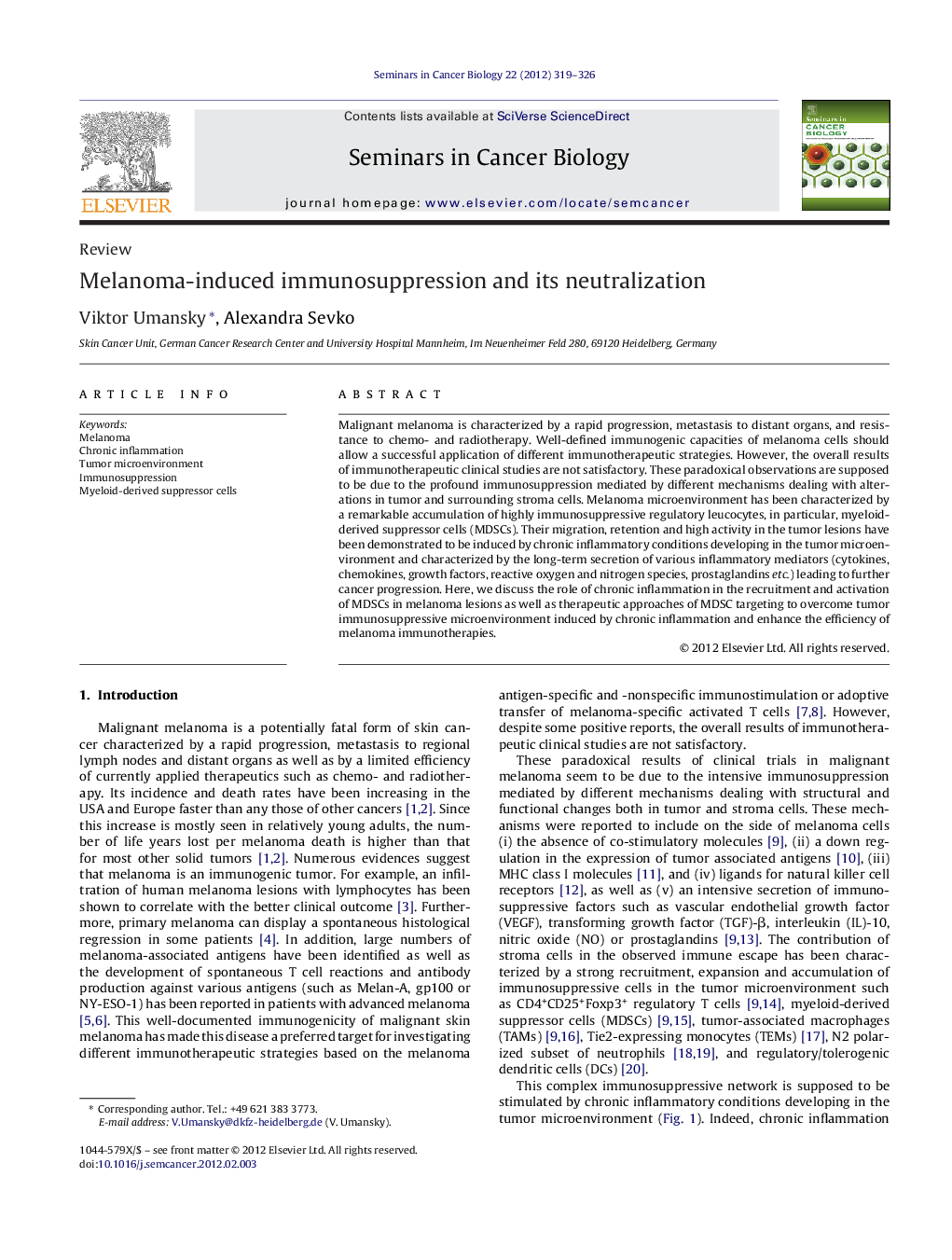| Article ID | Journal | Published Year | Pages | File Type |
|---|---|---|---|---|
| 10845658 | Seminars in Cancer Biology | 2012 | 8 Pages |
Abstract
Malignant melanoma is characterized by a rapid progression, metastasis to distant organs, and resistance to chemo- and radiotherapy. Well-defined immunogenic capacities of melanoma cells should allow a successful application of different immunotherapeutic strategies. However, the overall results of immunotherapeutic clinical studies are not satisfactory. These paradoxical observations are supposed to be due to the profound immunosuppression mediated by different mechanisms dealing with alterations in tumor and surrounding stroma cells. Melanoma microenvironment has been characterized by a remarkable accumulation of highly immunosuppressive regulatory leucocytes, in particular, myeloid-derived suppressor cells (MDSCs). Their migration, retention and high activity in the tumor lesions have been demonstrated to be induced by chronic inflammatory conditions developing in the tumor microenvironment and characterized by the long-term secretion of various inflammatory mediators (cytokines, chemokines, growth factors, reactive oxygen and nitrogen species, prostaglandins etc.) leading to further cancer progression. Here, we discuss the role of chronic inflammation in the recruitment and activation of MDSCs in melanoma lesions as well as therapeutic approaches of MDSC targeting to overcome tumor immunosuppressive microenvironment induced by chronic inflammation and enhance the efficiency of melanoma immunotherapies.
Keywords
Related Topics
Life Sciences
Biochemistry, Genetics and Molecular Biology
Biochemistry
Authors
Viktor Umansky, Alexandra Sevko,
